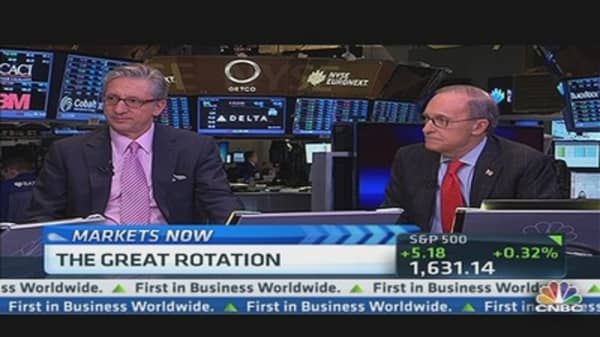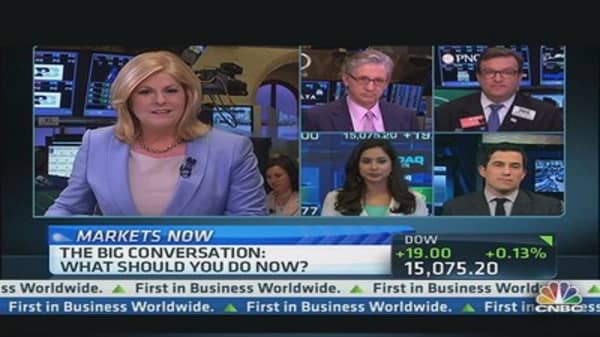Investors have been dipping into growth-oriented cyclicals, the sectors that have been under appreciated most of the year, and if it continues, the trend could add more momentum to the stock market rally.
"We are continuing to see a lot of money coming into the market, whether it's coming off the sidelines or into the mutual funds—$150 billion came out of money markets so far this year," said David Lutz, managing director and head of exchange-traded fund trading at Stifel Nicolaus. "We may see a pullback at some point, but it should be relatively short-lived and I'd be watching for a sector rotation."
In the first quarter, health care, consumer staples and utilities rounded out the top three sector performers, helping to propel the S&P 500 index by 10 percent.
(Read More: Sell in May, Go Away? Not This Year, Say Traders)
But since mid-April, the cyclical sectors (techs, energy, materials, financials, industrials and consumer discretionary) have gained more than 5 percent each and have outperformed the defensive sectors (consumer staples, telecoms, utilities and health care), which are mostly in the red. And in the last two weeks, techs have significantly outperformed the Dow and S&P indexes, surging nearly 8 percent.
The trend continued Wednesday, as techs and materials were the best performing major S&P sectors, while utilities and consumer staples declined.






